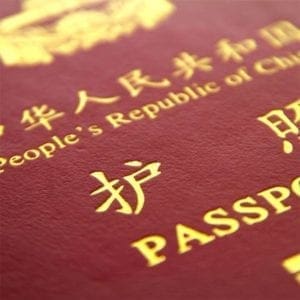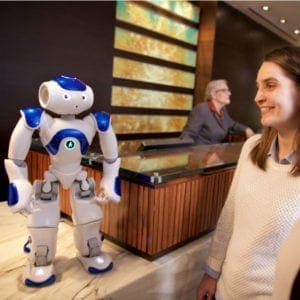 Hotel managers should encourage their employees to improvise service processes, as necessary, with a goal of improving guest satisfaction, according to a new report from the Center for Hospitality Research (CHR) at the Cornell University School of Hotel Administration. Guests at lower-tier hotels are particularly appreciative when employees break away from established procedures to solve their problems, according to the study, “The Role of Service Improvisation in Improving Hotel Customer Satisfaction,” by Enrico Secchi, Aleda Roth, and Rohit Verma, which is available from CHR at no charge.
Hotel managers should encourage their employees to improvise service processes, as necessary, with a goal of improving guest satisfaction, according to a new report from the Center for Hospitality Research (CHR) at the Cornell University School of Hotel Administration. Guests at lower-tier hotels are particularly appreciative when employees break away from established procedures to solve their problems, according to the study, “The Role of Service Improvisation in Improving Hotel Customer Satisfaction,” by Enrico Secchi, Aleda Roth, and Rohit Verma, which is available from CHR at no charge.
“We found that improvisation improves satisfaction for guests in all hotel tiers, but that is particularly true in the lower-end hotels,” said Secchi, a lecturer in supply chain management at the Smurfit Graduate School of Business at University College Dublin. “Those hotels’ business plans are built on systems and procedures, so people don’t really expect improvisation there. That’s probably why guests are particularly pleased when it occurs.”
However, even though lower-tier guests gain greater satisfaction from employee improvisation, the study indicates that it’s the upper-tier employees who are more likely to take the initiative. “We specifically examined three key elements of service improvisation,” said Roth, the Burlington Industries Professor in Supply Chain Management at Clemson University. “Those elements are creativity, spontaneity, and bricolage, which is the ability to assemble new services from available resources. One likely reason that employees at higher-end hotels were more likely to improvise is that they have more resources at their disposal to assemble in creative ways.”
“We surveyed 320 hotel managers and 137 hotel employees to determine the frequency and nature of employee improvisation,” explained Verma, the executive director of the Cornell Institute for Healthy Futures and the Singapore Tourism Board Distinguished Professor in Asian Hospitality Management at the School of Hotel Administration. “One particularly interesting finding was that managers seem not to be aware of how often their employees are departing from the script, so to speak. The managers’ estimate of the extent to which their employees used improvisation was lower than the levels of improvisation that the employees reported on our survey.”
Although it seems to be a contradiction in terms, the researchers conclude that hotels at all levels should develop policies and resources that encourage employee improvisation by enhancing staff creativity, spontaneity and bricolage. Such an approach should result in greater guest satisfaction.














